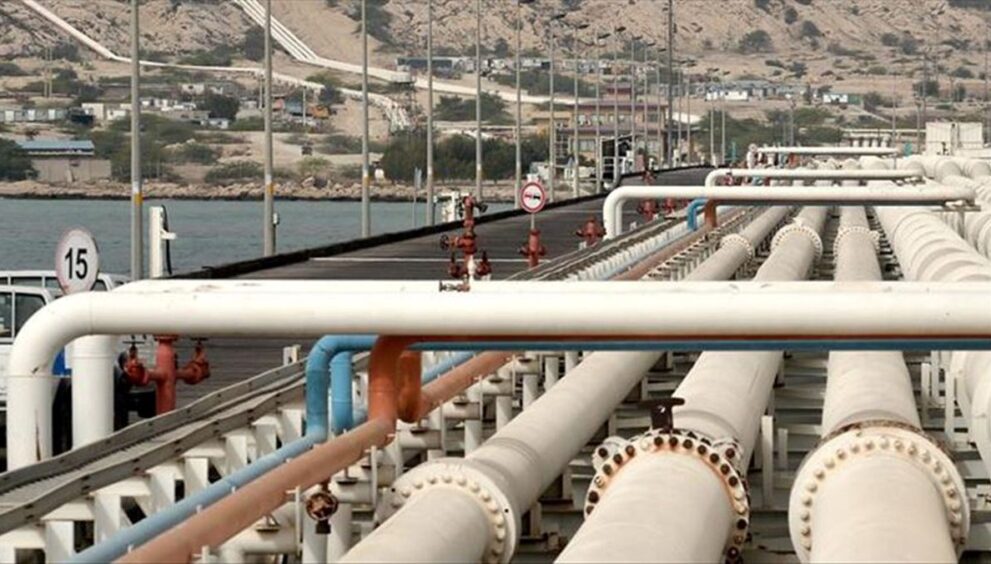Valves Opening on Iraq-Turkey Pipeline

It is expected that the Iraq-Turkey pipeline will be put back into operation after a hiatus of about 2 years. The initial target for daily oil exports via the Ceyhan Port is set at 185,000 barrels. Following the announcement by Iraq’s Oil Minister Hayyan Abdulgani that oil exports via the Ceyhan Port will resume through the Iraq Oil Marketing Company (SOMO), a step closer was taken to the reactivation of the Iraq-Turkey oil pipeline. Abdulgani, in his statement on February 28, revealed that oil exports would commence through the SOMO via the Ceyhan Port. He mentioned that the daily export, starting at 185,000 barrels initially, would gradually increase until reaching the projected capacity in the federal budget. As a result of the disagreement between Baghdad and Erbil administrations leading to the halt of oil flow on March 25, 2023, the possibility of resuming the flow approximately 2 years later emerged.
NEGOTIATION PROCESS WITH KRI
On February 2, the Iraqi Parliament ratified amendments in the budget law aimed to subsidize the production costs of international oil companies operating in the Kurdistan Region of Iraq (KRI) and set the transportation cost of oil produced in the region at $16 per barrel. This step was deemed a crucial development for the resumption of oil exports to Turkey. Subsequently, Oil Minister Abdulgani announced on February 4 that oil from the KRI would be delivered to SOMO and necessary procedures with Turkey for exports via the Ceyhan Port were being conducted. Furthermore, Abdulgani stated on February 17 that exports would resume within a week. On the same day, KRI Deputy Minister of Natural Resources Kemal Muhammed indicated that the process could be completed by March. The Iraqi Oil Ministry announced on February 22 that all procedures to restart exports had been completed and requested KRI officials to hand over the produced oil to SOMO for export via the Iraq-Turkey pipeline and Ceyhan Port. Subsequently, the KRI government announced on February 23 that an agreement had been reached with Iraq to resume oil exports with the formation of a joint technical team to inspect the pipeline. On February 25, Oil Minister Abdulgani declared that the pipeline was ready for exports and shipments were anticipated to begin within two days. Abdulgani noted that the daily amount allocated in the budget law for oil exports through the KRI ranged from 300,000 to 325,000 barrels. He mentioned that a portion would be used for domestic consumption and the remainder would be exported.
SUPPORT FROM THE US AND RUSSIA
On February 26, US Secretary of State Marco Rubio and Iraqi Prime Minister Muhammed Shiya es-Sudani agreed during a phone call on the necessity of “prompt action” for the reopening of the Iraq-Turkey oil pipeline. KRI President Neçirvan Barzani, in his statement on February 26, expressed expectations for the soon-to-be resumption of regional oil exports via the Ceyhan Port. Barzani indicated that the only obstacle ahead was technical issues such as financing companies and emphasized the supportive and encouraging role of the US. Stressing that the US was a fundamental partner of Iraq and the KRI, Barzani mentioned the active involvement of American and Russian companies in the process.
CREATING A $20 BILLION LOSS
The cessation of oil exports from Iraq to Turkey due to disagreements between Baghdad and Erbil resulted in an estimated loss of around $20 billion in the region. Prime Minister of the KRI Mesrur Barzani had announced in August 2023, following a meeting with the Energy and Natural Resources Minister Alparslan Bayraktar in Erbil, the agreement on the importance of resuming oil exports via Ceyhan. In April 2024, Bayraktar clarified that Turkey was not responsible for issues in the Iraq-Turkey pipeline, stating its readiness by October 4, 2023, but mentioned that disagreements between Erbil and Baghdad negatively impacted the process. The resumption of oil flow to Turkey is expected to contribute to the improvement of Ankara-Baghdad relations.
IMPACT OF THE TRUMP ADMINISTRATION
Kate Dourian, Visiting Fellow at the Washington Institute for Near East Policy, suggested that foreign companies operating in the KRI may be reluctant to hand over their oil to SOMO. Dourian emphasized the need to consider multiple variables as companies’ financing and the technical status of the pipeline remained uncertainties. Commenting on the potential impact on global supply balances, Dourian stated, “I believe the restart of oil exports is a response to pressure coming from President Donald Trump. While the pressure is not directly from Trump but from his administration, it was previously noted that the Washington administration had warned that if Iraq’s northern region did not maintain oil exports, the country would face US sanctions as part of its ‘maximum-pressure’ policy against Iran. Moreover, I do not anticipate a significant impact on global supply balances in case of the resumption of exports as Iraq will need to curtail production from its federally-controlled southern fields to comply with the OPEC+ quota.”






















































































































































































































































































































































































































































































































































































































































































































































































































































































































































































































































































































































































































































































































































































































































































































































































































































































































































































































































































































































































































































































































































































































































































































































































































































































































































































































































































































































